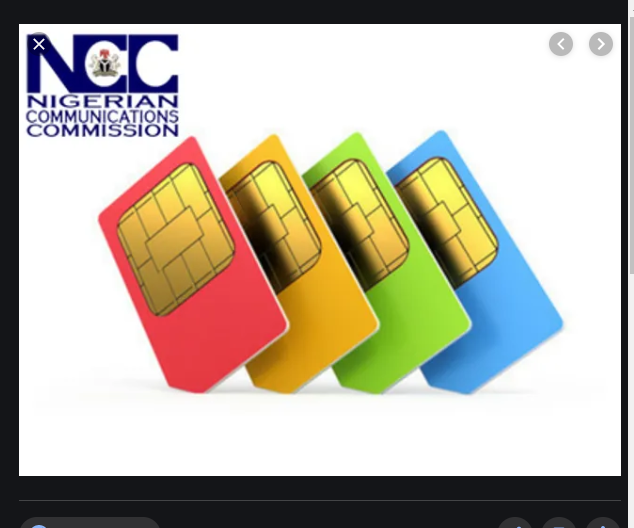Mandate Police to Arrest Telecoms Infrastructure Vandals

The Federal government has directed the telecommunication industry regulator; The Nigerian Communications Commission (NCC) to block all active registered Subscriber Identification Module (SIM) cards with improperly biodata before the end of first quarter of year 2020.
The telecommunication regulator has also been directed to engage security agencies including the Nigerian Police Force (NPF) to prosecute infrastructure vandals in the sector.
The Honourable Minister of Communications and Digital Economy (HMCDE), Dr. Isa Ali Ibrahim (Pantami) on Friday made this known as he addressed the media on the state of the nation’s digital economy policy, Information Communication Technology (ICT), national development and related security matters in Abuja.
He explained that the Federal Government’s directive to NCC to ensure that improperly registered SIM cards are blocked and vandals of infrastructure in the telecommunication industry are prosecuted was to strengthen the ongoing efforts towards securing lives and properties in the country.
According to the minister “Life is more important than material benefits of having many SIM cards in circulation, and in any case, blocking improperly registered SIM cards will did not diminish the contribution of ICT to the nation’s GDP.”
The Minister stated that the Office of the National Security Adviser (ONSA) was vetting content of the proposed Executive Order on Critical National Infrastructure (CNI) Protection, which is one of the key demands of the Nigerian Communications Commission (NCC) to ensure a halt to the rampant vandalism of telecommunications infrastructure.
The briefing was attended by chief executive officers and management staff of the FMoCDE and its agencies, including Engr. Ubale Maska, NCC’s Executive Commissioner Technical Services, who represented the Executive Vice Chairman of the Commission, Prof. Umar Danbatta.

Also present at the briefing were, Barrister Adeleke Adewolu, NCC’s Executive Commissioner, Stakeholder Management; Dr. Abimbola Alale, Managing Director of Nigerian Communications Satellite (NIGCOMSAT) Limited; Inuwa Kashifu Abdullahi, Chairman, Nigerian Communications Satellite (NIGCOMSAT) and Prof. Mohammed Abubakar, the Managing Director of Galaxy Backbone Limited.
According the Minister, Nigeria adopted Subscriber Identification Module (SIM) card registration policy in 2019 and since 25th of September of the same year its government has frown against active use of the telecommunication card without being properly registered.
He however explained further that, “You (subscribers) may buy a SIM card but cannot activate it for usage unless it has been properly registered. NCC will provide biodata of any improperly-used SIM card to the police or other security agencies within 24 hours whenever it is required.”
Speaking further, Pantami enjoined all telecommunication operators to work in tandem with the Nigerian Communications Commission and the security agencies in ensuring that the security architecture of the country is not breach and exposed either online or offline.
FG Expects Every Nigerians to be ICT Literate by 2025
Speaking further during the briefing, the Minister stated that the implementation of the National Digital Economy Strategy, which was drafted by the Ministry and unveiled by the President Muhammadu Buhari at the e-Nigeria Conference in November 2019, has started.
He stressed that by the end of the decade,” the Federal Government expects every Nigerian to be connected to the digital Nigeria policy by being computer literate, own a digital device, have access to the Internet, own a bank account that can be accessed and operated digitally and online.”

Beyond financial services, the Minister said the Federal Government hopes to see majority of the citizens undertake many activities electronically, “This means online communications and transactions should be focused on and encourage. Digital economy ensures that taxes and prices come down because when prices come down, demand goes up” and entrepreneurs make more profit by sheer increase in the volume of trade. “It is simple economics,” the Minister added.
The second mainstay of the digital economy policy is Digital Literacy and Skills, and the Minister emphasised the importance of this pillar because digital economy is unrealisable without skills. Pantami enumerated that different sections of the population are targeted for training and retraining, including women, youths, journalists, civil servants and those who are certificated but unemployed.
He was optimistic that, at least, 90 percent of Nigerians will be digitally literate by the end of the decade as all agencies in the Ministry will be involved in series of training and retraining as much as the financial circumstances of the nation permit.
Solid Infrastructure, the third pillar of the policy, will ensure availability of robust data centres and deals with broadband expansion, according to the Minister.

He explained that the 2020-2025 Broadband Plan is expected to be ready within the first quarter of 2020 and the plan is to ensure that all unserved and underserved areas have access to broadband services. For this, he said the Federal Government and the Ministry are encouraging many institutions to host their data in Nigeria as he promised to continue the advocacy.
The fourth policy pillar – Service Infrastructure, according to the Minister, is focused on facilitating digitisation of activities that will find deeper expression in e-health, e-agriculture and other automated transactions. He accentuated the connection of automation to the Gross Domestic Product (GDP) by stating that studies by International Telecommunications Union (ITU) and other development agencies have revealed that 10 percent increase in broadband penetration could increase GDP by up to 2.5 percent.








